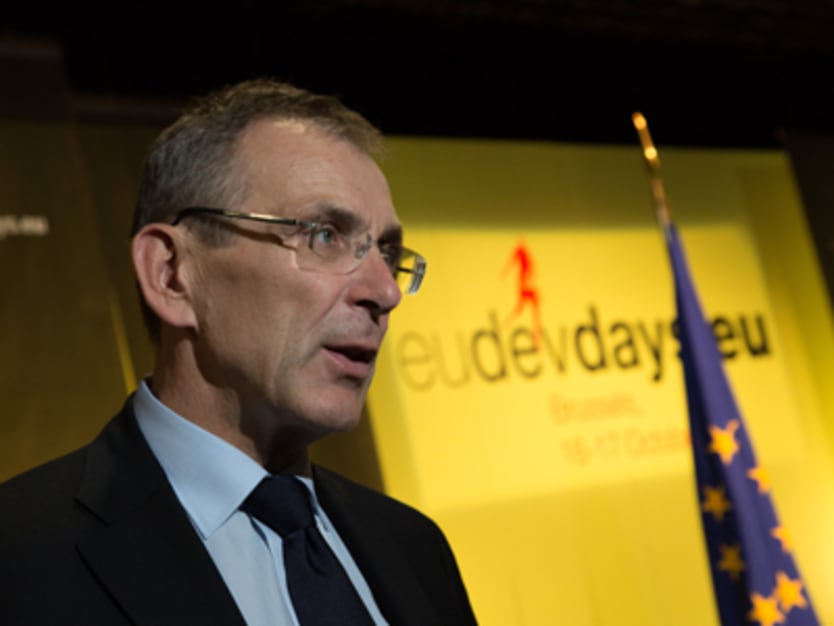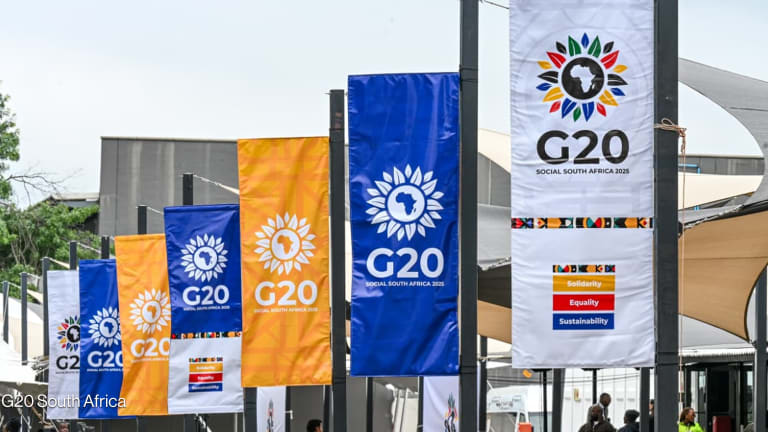
President Joyce Banda isn’t going home empty-handed. On the last day of the European Development Days, the European Union signed two agreements that will provide support to farmers and poor, orphaned households in Malawi.
The Western bloc will provide €98 million ($128.4 million) to Malawi: €63 million for agriculture and irrigation, which will go to a multidonor trust fund, and €35 million for a government-run social cash transfer program. The money is expected to boost economic growth and help the African country reach the Millennium Development Goal on hunger and poverty, according to a press release.
The support coincides with one of EDD’s three themes this year — food security, which is also a focus of several panel discussions at the two-day event. On Oct. 17, panelists discussed the importance of social safety nets, incorporating the “Right to Food” in the post-2015 development agenda and engaging the private sector in agricultural development.
Here are some highlights from the last day of #EDD12:
Inclusive business models can create incomes, deliver goods and services, and inspire entrepreneurship — but they have limitations, too, which the public sector can fill by supporting research, acting as an intermediary among different stakeholders, providing funding and developing policies, as highlighted by Endeva Managing Director Christina Gradl.
Developing countries such as Vietnam are increasingly turning to the private sector for greener, more inclusive growth. But panelists who participated in a discussion on green and inclusive innovation argued private sector participation should go beyond just building more roads for infrastructure.
In two panel discussions, the spotlight was on biofuels — how it is creating inequalities in Africa and other developing countries around the world. The European Union’s policy on biofuels was among topics discussed at the panels.
Unemployed youth may engage in violence out of frustration, as was the case with the Arab Spring, Plan International deputy CEO Tjipke Bergsma said in a panel on youth economic empowerment. So what can the international community do? Young women who participated in a youth in action program highlighted the importance of thinking outside the box to address the problem of youth unemployment. One of them said there is no “golden ticket” to solve the problem, but the youth can do two things: raise awareness and influence policymakers.
A panel on inclusive development underlined the importance of financial literacy to boost the growth of small and medium enterprises, especially those in developing countries. Innovative financing, and balanced and flexible policies are also important. But policies tend to “stifle innovation” sometimes, U.N. Capital Development Fund Financial Inclusion Division Director Henri Dommel said.
People’s attitudes need to change, whether it be on their way of living or toward natural resources, to achieve sustainable and inclusive growth. “We are still working on the basis that we have cheap, infinite resources. We don’t have the natural resources available that we did in the past,” Stockholm Environment Institute Executive Director Johan Kuylenstierna said in a panel discussing post-Rio+20 strategies. U.N. Development Program Assistant Secretary-General Sigrid Kaag, meanwhile, said: “We used to think that our way of living was the gold standard, but maybe it’s not anymore.”
Andris Piebalgs said this year’s EDDs has been about “people-centered development” in his closing remarks. “As development players, we’re always putting people first — but sometimes it’s good to remind ourselves of that,” he said.
Check our EDD12 topic page in the coming days for our exclusive video interviews from Brussels. Read more development aid news online, and subscribe to The Development Newswire to receive top international development headlines from the world’s leading donors, news sources and opinion leaders — emailed to you FREE every business day.








